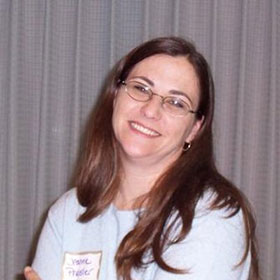by Jeanne Preisler
There are a few times in life that have a distinct before and after: getting married, for instance. Becoming a parent. Becoming a grandparent.
I believe parenting a traumatized child is another example.
It’s difficult to explain to others what parenting a traumatized child feels like. How much emotional and cognitive effort it demands. How draining that can be. How isolating.
Sometimes foster, adoptive and kinship families feel alone and overwhelmed, and as if they aren’t making a difference.
They’d rather not admit, even to friends or loved ones, that they are questioning their decision to become foster/adoptive parents and may even be questioning their own competency as parents.
See Things in a New Light
If what I have said resonates for you at all, I’ve got a book to suggest. Wounded Children, Healing Homes, by Schooler, Keefer Smalley, and Callahan (NavPress, 2010) is one of my favorite books because it helps normalize all of the feelings I’ve described.
Subtitled “How Traumatized Children Impact Adoptive and Foster Families,” this book will help you understand the maze of frustration you are in is one others have successfully navigated before. This book will give every foster and adoptive parent hope because it helps us to see children’s behavior in a new, meaningful light.
The other reason I love this book is that each chapter has discussion questions at the end and can be used independently. So, if you are fortunate enough to have a support group in your area, this book would be a great investment of time and resources. If you do not have a support group in your area, please consider starting one—NC Kids Adoption and Foster Care Network can help you (call them toll free at 1-877-NC KIDS-1).
Wounded Children, Healing Homes will also help parents see how their own life experience may be interacting with the young person’s, contributing to both positive and sometimes negative outcomes.
“Trauma leaves vulnerable spirits” Sharon Roszia says in the forward of the book. Indeed that is true. Vulnerable children and vulnerable families.
Children enter the foster care program for many reasons. My greatest hope is when they leave it, they are emotionally stronger than when they entered. This is more likely to happen if every adult in their life is well-informed about the impact of trauma and knows how to respond in a way that strengthens that young person’s sense of self and makes them feel loveable and capable.
This reflective, informative book can help.
Jeanne Preisler is a Program Consultant with the NC Division of Social Services and is leading an effort to help our child-serving system become more trauma-informed.


